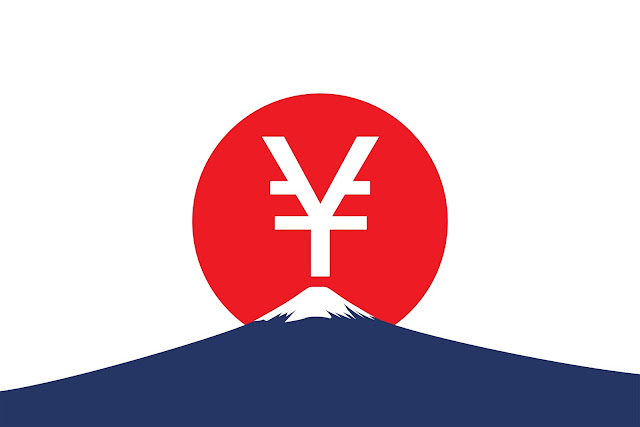Tightening ? In Japan ? You're having a laugh, surely ...... ? ref :- "US Treasuries lead bonds sell-off as BoJ trims buying of long-dated debt", The Financial Times, Global Overview, Markets and Investing
On the run again today but just quickly ..... we've landed on the
FT's round-up but all this morning's reviews lead with yesterday's actions by
the Bank of Japan that not entirely surprisingly look to have caught the
markets slightly unawares.
Of all the world's central banks, by whatever measure you care to
use the biggest user of Quantitative Easing (QE) has been not the US Federal
Reserve, not the European Central Bank and certainly not the little old Lady of
Threadneedle Street (aka the Bank of England, of course). It's been the Bank of
Japan, which has been fighting deflation and attempting to prompt some reliably
positive inflation readings for .... well, decades. There was something of a
false dawn in 2014 but in essence this battle has been going on since before a
good many of the traders involved in the issue were even born. Moreover, the
BoJ and government ministers have not been shy in professing that their
commitment to the cause remains as strong as ever.
So the timing of BoJ's decision yesterday to trim its purchases of
debt caught some by surprise, even if most accept that the adoption of a policy
to control the yield curve in September 2016 always implied a gradual reduction
of purchases. There have been signals too ..... when BoJ Governor Kuroda speaks
of the difficulties that the financial sector faces from prolonged ultra-low
rates (as he has been), it's not unreasonable to speculate that he might just
be laying the groundwork for a very gradual move towards tighter monetary
policy -- eventually, that is.
Anyone thinking that the BoJ might shortly come over all hawkish
needs to clam down, but all of a sudden it's legitimate to wonder if the whole
process might start sooner than expected. Judging from yesterday's action, that
certainly seems to be the investor reaction to events : strength in
the Yen (even against an otherwise strong dollar), and a jump in global bond
yields as the markets digest the possibility that the famously doveish BoJ
might soon put on the brakes. In the light of developments, investors should at
least be contemplating some pretty fundamental questions :
For how long will soaring Japanese stocks be able to ignore the
detrimental effects of a strengthening Yen should the move become extended ?
As US 10yr Treasury yields get a further boost from the BoJ and
surge through 2.50% (last at 2.58%), does that finally mean that that the great
bull market in bonds is over, and that the path to higher yields is now open ?
That's already the case, according to guru Bill Gross of Janus Henderson . Mind
you, guru or not he does have some form in being a little quick off the mark in
such matters in the past but that doesn't mean he's not right this time.
And if yields keep climbing, how will that leave the uber-rally in
stocks ? One of the factors behind the rally has been both the capital gain and
dividend return available being so much more attractive than meagre yields
available in the bond market. If yields rally against a background of excessive
equity market valuations, will that be the end of the stock market rally ? Step
forward another guru Jeffrey Gundlach of DoubleLine Capital, who believes that
the S&P 500 will end up lower for 2018 in spite of strength in the early
part of the year.
Well, it's food for thought at the very least ......



No comments